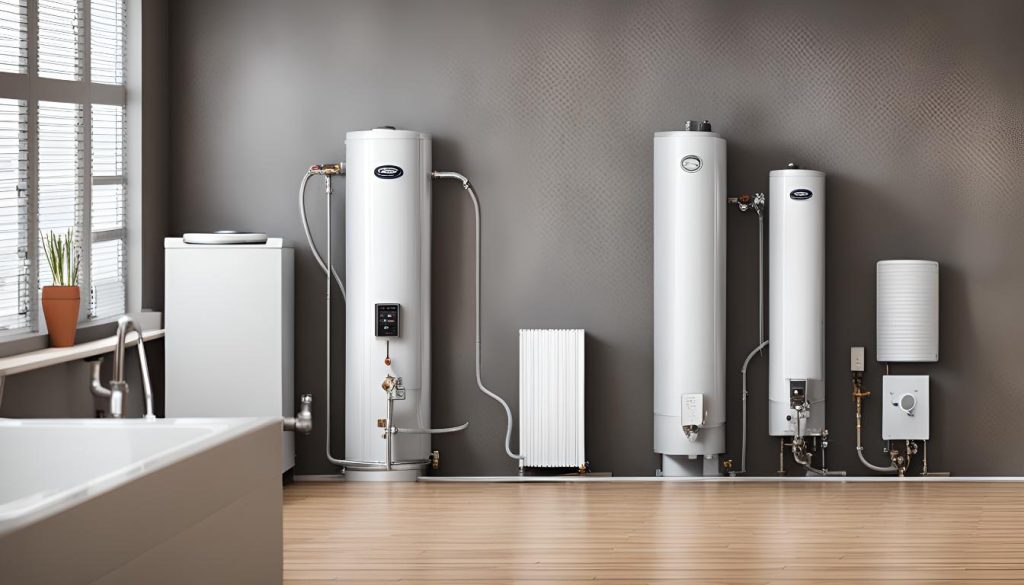Heating water can make up a significant part of household energy expenses. To manage these costs, understanding the electricity consumption of hot water systems is essential. In this post, we break down the energy use of different systems, factors affecting their efficiency, and ways to save on costs.
Types of Hot Water Systems and Their Electricity Consumption
The type of hot water system in use largely affects electricity consumption. Systems typically fall into three main categories: electric storage, gas, and solar.
Electric Storage Heaters
Electric storage systems are common in many homes but are also the most energy-intensive. They continuously heat water to a set temperature, consuming between 2 to 4 kWh per hour depending on tank size and insulation. This high energy usage translates to noticeable electricity bills, especially if used heavily throughout the day.
Gas Hot Water Systems
Gas water heaters are generally cheaper to run than electric models, as natural gas costs less per energy unit. However, they also need adequate ventilation. While gas heaters are less energy-intensive, they have operational costs linked to fuel, impacting total expenses.
Solar Hot Water Systems
Solar systems harness sunlight to heat water, drastically reducing energy bills. They require an initial investment, which can be higher than other systems, but long-term savings are substantial, especially in sunny regions. Backup electric or gas systems may be needed during overcast days, but overall, solar heaters save the most on energy costs.
Factors Affecting Hot Water System Electricity Usage
Several factors influence the energy consumption of a hot water system:
- System Size and Capacity: Larger tanks consume more energy to maintain temperature.
- Usage Frequency: Heavy usage increases energy costs as systems must heat more water frequently.
- Water Temperature Setting: Higher temperature settings lead to increased electricity use.
- Location and Insulation: Well-insulated tanks in warmer areas lose less heat, reducing power needs.
3. Estimating Electricity Costs for Hot Water Heating
To calculate the monthly cost of running an electric hot water system, multiply the system’s power (in kW) by the hours used each day, and then by your electricity rate. For instance, if a heater runs for four hours a day at 4 kW, this results in 480 kWh per month (4 kW x 4 hours x 30 days).
For a more accurate estimate, consult an electrician, or use online calculators available on sites like Emergency Plumbers, which offer tools to help you assess your system’s energy needs and suggest suitable upgrades to lower costs.
4. Reducing Electricity Consumption
To make your water heating more efficient:
- Lower the Thermostat: Reducing the thermostat by 5-10 degrees can significantly lower energy use.
- Limit Hot Water Usage: Reducing shower duration and using cold water for laundry can contribute to savings.
- Insulate Your Water Heater: Insulating the tank and pipes minimises heat loss, allowing water to stay warm longer and reducing the heater’s workload.
Energy Efficiency Tips to Lower Your Water Heating Costs
Lowering hot water system energy costs is achievable with a few practical adjustments:
- Lower the Thermostat: Reducing the water temperature from 60°C to 50°C can cut energy usage by up to 10%.
- Use an Insulation Blanket: An insulation blanket on your water tank can reduce standby heat loss, helping conserve energy.
- Switch to a Timer: A timer allows you to operate the heater only during peak usage hours, minimizing idle energy consumption.
- Fix Leaks Promptly: Leaks waste water and increase heating costs. JG Wilson Emergency Plumbers can provide quick repairs to minimise energy waste.
Benefits of Monitoring and Maintaining Your Hot Water System
Regular maintenance not only improves energy efficiency but extends the lifespan of your hot water system. At JG Wilson Emergency Plumbers, we provide comprehensive maintenance services, ensuring your system operates optimally year-round. By keeping your system in top condition, you avoid costly repairs and keep your energy bills in check.
Conclusion
understanding how much electricity your hot water system uses can help you make informed decisions on managing energy costs. Regular maintenance, adjusting settings, and choosing the right system can significantly impact your utility bills and environmental footprint. For expert advice and reliable service, turn to JG Wilson Emergency Plumbers. Call us at 02 9622 4888 today to schedule a consultation and explore how we can help you achieve a more energy-efficient home. Make the smart choice for your plumbing needs and start saving on energy costs!







Comments are closed